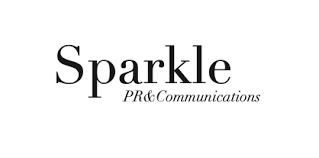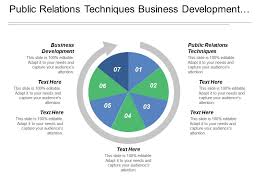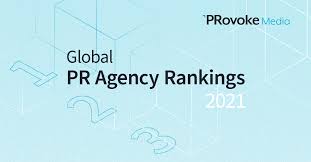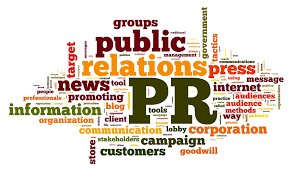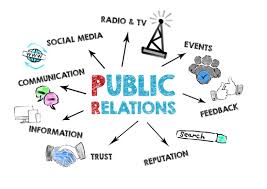Unlocking Brand Potential: The Strategic Role of a PR Branding Agency
The Role of a PR Branding Agency in Building Strong Brands
In today’s competitive business landscape, establishing a strong brand identity is crucial for success. A PR branding agency plays a vital role in helping companies develop and maintain a positive brand image that resonates with their target audience.
PR branding agencies are experts in crafting compelling narratives and messaging that effectively communicate a brand’s values, mission, and unique selling points. They work closely with clients to develop strategic communication plans that enhance brand visibility and reputation.
One of the key functions of a PR branding agency is to manage media relations on behalf of their clients. They help secure positive media coverage through press releases, media pitches, and relationship building with journalists. By generating positive publicity, PR branding agencies can increase brand awareness and credibility.
Furthermore, PR branding agencies play a crucial role in crisis management. In the event of a negative incident or public relations issue, they provide guidance on how to effectively address the situation and protect the brand’s reputation.
Collaborating with a PR branding agency can also help companies build thought leadership within their industry. By positioning key executives as experts in their field through speaking engagements, contributed articles, and interviews, brands can establish credibility and authority among their target audience.
Overall, a PR branding agency serves as a strategic partner for companies looking to build and maintain strong brands in today’s competitive market. By leveraging their expertise in communication strategy, media relations, crisis management, and thought leadership development, PR branding agencies play a vital role in shaping how brands are perceived by the public.
Top 5 Essential Tips for Effective PR Branding Agency Success
- Understand your client’s brand identity and values thoroughly before developing any PR strategies.
- Stay updated with the latest industry trends and news to offer relevant and timely PR solutions.
- Build strong relationships with media outlets and influencers to enhance the reach of your PR campaigns.
- Monitor and analyse the results of your PR efforts regularly to make data-driven decisions for future strategies.
- Communicate transparently with clients about the progress of their PR campaigns, maintaining open and honest dialogue.
Understand your client’s brand identity and values thoroughly before developing any PR strategies.
To maximise the effectiveness of PR strategies, it is essential for a PR branding agency to have a deep understanding of their client’s brand identity and core values. By thoroughly grasping what the brand stands for and what sets it apart from competitors, the agency can tailor communication plans that authentically reflect and reinforce these key aspects. This foundational knowledge ensures that PR efforts are aligned with the brand’s ethos, resonating with the target audience and building a consistent and compelling brand narrative across all communication channels.
Stay updated with the latest industry trends and news to offer relevant and timely PR solutions.
To thrive in the dynamic world of PR branding, it is essential for agencies to stay informed about the latest industry trends and news. By keeping a pulse on current developments, PR branding agencies can offer clients relevant and timely solutions that align with the ever-changing landscape of communication. Being up-to-date allows agencies to anticipate shifts in consumer behaviour, emerging technologies, and market dynamics, enabling them to craft strategies that resonate with target audiences and drive impactful results for their clients.
Build strong relationships with media outlets and influencers to enhance the reach of your PR campaigns.
Building strong relationships with media outlets and influencers is a crucial tip for any PR branding agency looking to enhance the reach and impact of their campaigns. By cultivating these relationships, agencies can secure valuable opportunities for coverage and endorsements, amplifying their clients’ messages to a wider audience. Media outlets and influencers hold the power to shape public perception and drive engagement, making them valuable partners in building brand awareness and credibility. Through strategic partnerships and consistent communication, PR branding agencies can leverage the influence of media outlets and influencers to maximise the effectiveness of their campaigns and achieve tangible results for their clients.
Monitor and analyse the results of your PR efforts regularly to make data-driven decisions for future strategies.
Monitoring and analysing the results of your PR efforts regularly is essential for making informed, data-driven decisions when shaping future strategies. By tracking key performance indicators such as media coverage, audience engagement, and brand sentiment, a PR branding agency can gain valuable insights into the effectiveness of their communication initiatives. This data allows them to identify what is working well and what areas may need improvement, enabling them to refine their strategies for maximum impact and success in building a strong brand identity.
Communicate transparently with clients about the progress of their PR campaigns, maintaining open and honest dialogue.
Effective communication is a cornerstone of successful PR branding agencies. It is essential to communicate transparently with clients about the progress of their PR campaigns, maintaining open and honest dialogue throughout the process. By keeping clients informed and involved, agencies can build trust and demonstrate their commitment to achieving the best possible results. Clear communication ensures that clients are aware of the strategies being implemented, the outcomes achieved, and any adjustments made along the way, fostering a collaborative relationship built on transparency and mutual understanding.



